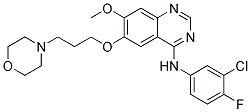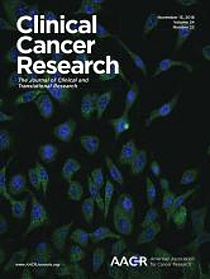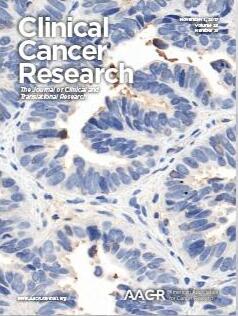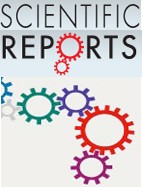All AbMole products are for research use only, cannot be used for human consumption.

Gefitinib (ZD1839) is an EGFR tyrosine kinase and Akt phosphorylation inhibitor. Gefitinib significantly down-regulates CD47 expression and increases DC phagocytosis in non-small cell lung cancer cells such as PC9, H1437 and H1573. Gefitinib combined with CD47 antibody can enhance the phagocytosis of macrophages.

Chin Med. 2025 Jan 03.
Aidi injection inhibits the migration and invasion of gefitinib-resistant lung adenocarcinoma cells by regulating the PLAT/FAK/AKT pathway
Gefitinib purchased from AbMole

Cancer Cell Int. 2023 Jul 2;23(1):129.
Exosome-derived circKIF20B suppresses gefitinib resistance and cell proliferation in non-small cell lung cancer
Gefitinib purchased from AbMole

Clin Transl Oncol. 2023 May;25(5):1425-1435.
ADAM12 promotes gemcitabine resistance by activating EGFR signaling pathway and induces EMT in bladder cancer
Gefitinib purchased from AbMole

Endocrinology. 2020 May 30;bqaa086.
RIPK2 Dictates Insulin Responses to Tyrosine Kinase Inhibitors in Obese Male Mice
Gefitinib purchased from AbMole

Clin Cancer Res. 2018 Nov 15;24(22):5658-5672.
Increased Synthesis of MCL-1 Protein Underlies Initial Survival of EGFR-Mutant Lung Cancer to EGFR Inhibitors and Provides a Novel Drug Target.
Gefitinib purchased from AbMole

Clin Cancer Res. 2018 Jan 1;24(1):197-208.
Epithelial-to-mesenchymal transition antagonizes response to targeted therapies in lung cancer by suppressing BIM
Gefitinib purchased from AbMole

Sci Rep. 2017 May 8;7(1):1578.
Tyrosine kinase inhibitors of Ripk2 attenuate bacterial cell wallmediated lipolysis, inflammation and dysglycemia
Gefitinib purchased from AbMole
| Cell Experiment | |
|---|---|
| Cell lines | MDA-361, SKBR-3, MDA-453 and BT-474 cells |
| Preparation method | Monolayer Growth and Anchorage-independent Growth Assays. For monolayer growth, cells were seeded at a density of 3–4 104 cells in 12-well plates. Twenty-four h later, ZD1839 was added to the cells. Fresh medium ZD1839 was replaced on day 3. On day 5, cells were harvested by trypsinization and counted with a Zeiss Coulter Counter (Beckman Coulter, Miami, FL). Colony-forming assays in soft agarose were performed as described previously (30). Tumor cell colonies measuring 50 m were counted after 7 days using an Omnicon 3800 colony counter and Tumor Colony Analysis V2.IIA software (Imaging Products International, Inc.). |
| Concentrations | 0.1–10 µ M |
| Incubation time | 4 days |
| Animal Experiment | |
|---|---|
| Animal models | BT-474 cells Xenograft in Athymic Mice |
| Formulation | 0.05% Tween 80 |
| Dosages | 200 mg/kg/day for 28 days |
| Administration | oral gavage |
| Molecular Weight | 446.90 |
| Formula | C22H24ClFN4O3 |
| CAS Number | 184475-35-2 |
| Solubility (25°C) | DMSO 68 mg/mL |
| Storage |
Powder -20°C 3 years ; 4°C 2 years In solvent -80°C 6 months ; -20°C 1 month |
| Related EGFR/HER2 Products |
|---|
| Depatuxizumab
Depatuxizumab is a brain-penetrant and humanized tumor-specific anti EGFR monoclonal antibody. Depatuxizumab inhibits the growth of xenograft models of mutant EGFRvIII and wild-type EGFR. |
| Sevabertinib
Sevabertinib is an epidermal growth factor receptor (EGFR) tyrosine kinase inhibitor with antitumor activity. |
| BPIQ-I
BPIQ-I (PD 159121) is a potent and ATP-competitive EGFR tyrosine kinase inhibitor.. |
| HKI-357
HKI-357 is an irreversible dual inhibitor of EGFR and ERBB2 with IC50s of 34 nM and 33 nM, respectively. |
| SJF-1528
SJF-1528 is a potent EGFR PROTAC degrader with DC50 values of 39.2 nM and 736.2 nM for wild-type EGFR in OVCAR8 cells and Exon 20 Ins mutated EGFR in HeLa cells. |
All AbMole products are for research use only, cannot be used for human consumption or veterinary use. We do not provide products or services to individuals. Please comply with the intended use and do not use AbMole products for any other purpose.


Products are for research use only. Not for human use. We do not sell to patients.
© Copyright 2010-2024 AbMole BioScience. All Rights Reserved.
